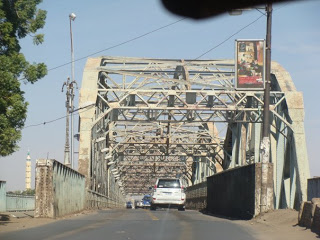Originally published on 27/10/2019 on LinkedIn
I just finished reading an interesting article by Ashley Eva Millar and Malan Rietveld titled \’Natural Resources: A blessing or a curse?\’ as part of my research for a paper we are writing. The article discusses the apparently negative relationship between a country\’s possession of natural resources and its economic success. The theory in a nut-shell is that countries rich in natural resources do not generally do well economically, with some exceptions such as Norway and Australia. Based on past and current research, the authors give 5 possible reasons leading to this negative relationship:
- Long-term decline in commodity prices
- Volatility
- Lack of diversification
- Poor institutions
- Conflict
The paper goes further to give examples of 2 countries, Nigeria and Botswana, on opposite sides of the spectrum of this success – the former being a failure and the latter a success. Even before reading these explanations, I could see how my own country, Sudan, could be an example of how a country so rich in natural resources could be in such a big mess economically. This failure is what led to the latest in a long series of protests that eventually gained so much strength and momentum they finally and successfully dislodged the longest-ruling dictator in the continent.
And while the paper discusses success from a purely economic point of view, it can be argued that this success correlates with the country\’s health indicators at some level. With this in mind, I found myself looking for similarities between these conclusions and those we reached when reviewed how the Sudanese health system was financed back in 2013, as part of an exercise to formulate the country\’s health financing policy. We conducted the review using the OASIS tool from WHO. Looking at the 5 points mentioned by the authors, the last 3 are what I believe have the strongest impact on the Sudanese economy and by extension the health system. The fourth point in particular, poor institutions, is what could somewhat match our review conclusions.
Sudan has miles of some of the most fertile land in the region, a huge young and able-bodied work-force, the longest river in the world, as well as oil, gas and valuable minerals. But it also has a poverty rate of almost 50%, and some of the most horrific health indicators in the area. In 2017 it was reported that 30 newborns out of 1000 live births died, as did more than 300 mothers out of 100,000, and more than 60 children out of 1000 did not live to see their 5th birthday (WHO). More than 70% of health expenditure is out-of-pocket (OOP), and this can be so catastrophic on families that around 10% of families are pushed into poverty after the illness of a family member, and almost a third of people cannot get full treatment due to the impact of expenses on their household income. These are just some of the figures.
Despite its role in the future division of the country, the colonial legacy left a well-built civil service that had managed to run the country over several decades despite a number of military coups and 3 short-lived attempts at democracy. However, after 1989 this system was targeted and dismantled by the regime, with highly qualified professionals sacked and replaced with loyalists to the regime regardless of their competence. Over the years this led to a deterioration in all public services, and the health system was one of the hardest hit.
In our review, we noted that while the system had a number of frameworks and legislations in place to govern health system financing, there was little implementation, negligible accountability and frightful shortcomings in issues such as allocation. There are numerous conflicting policies and practices like fragmented financial channels that add to the transaction cost. Pooling and purchasing are fragmented and overall management is not cost-effective.
With the new civilian government now in place, the formidable challenge is to attempt to overturn in 3 years what has been destroyed over 3 decades. The people are optimistic in their demands: free and high-quality healthcare for all, today. While they (we) deserve nothing less, the current situation does not give much hope – but doesn\’t mean it is impossible either. But it does need a lot of work.
And that\’s what we\’re here to do.
